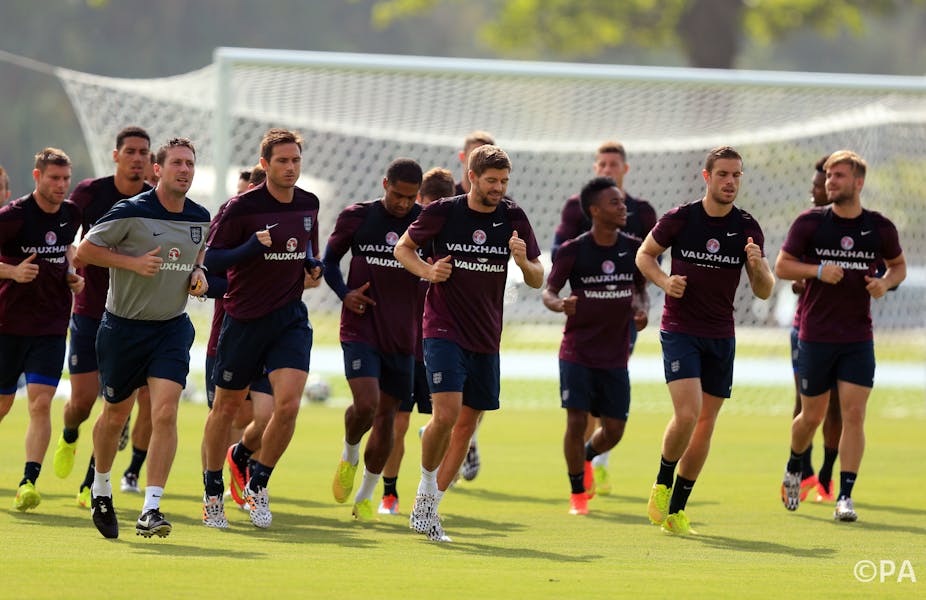You are what you eat. And in sports like football this is particularly true. Consuming the right or wrong foods and drinks can be the difference between winning and losing a match.
It’s easy to think that sports nutrition is just about what you eat when you’re playing, but in reality the planning will have started a long time ago. Before even leaving home, teams would have had to think about travel and the effect it has on their diet. What and where will the players eat when they get there? Will there be familiar foods the players want to eat?
Food poisoning is an ever-present risk that can have massive effects on performance. In 2006 a bout of food poisoning struck down ten of English football club Tottenham Hotspur’s players before a crucial game – it cost them dearly. This isn’t something that any team wants to experience.
The size of Brazil means teams are travelling extensively between games and crossing climates in the process. Nutrition is important in letting their bodies adapt well. Flying is known to dehydrate and a loss of 2% of body weight from dehydration can reduce performance. In a game where players need to make the most of all the advantages they can, this is something they’ll need to avoid.
Drinking an extra 15 to 20ml for every hour of flight is recommended; fruit juices and water are preferable to the dehydrating cola, tea and coffee, which could just make the problem worse. Hydration status is being tightly measured by tests that can be as simple as measuring urine against a colour chart. Other ways you can tell if you’re dehydrated from sport include measuring yourself before and after a match. The weight difference is the amount of fluid you’ve lost and for every kilo lost you should drink an extra litre of water.

About three hours before kick-off the players should be eating a meal high in carbohydrates. This is the energy source that keeps athletes going for the full 90 minutes – or longer if the match goes into extra time. Ideally it should consist of low-glycaemic index foods such as porridge, pasta and rice. They are broken down more slowly and release sugar more gradually into the blood stream.
That isn’t to say that high-glycaemic foods have no place in sports nutrition. The runners’ favourite: jelly babies, for example, are broken down and absorbed quickly into the blood stream. This gives a vital boost of energy during games and consuming high-glycaemic carbohydrates is vitally important for sports that last more than an hour.
Sports drinks have the same effect, with the benefit of replacing the fluid and salts lost from sweat. With temperatures predicted to be higher than 30˚C for many matches, rehydrating will be a vital part of the team schedule. So those oranges at half time really do have a scientific basis.
And what better after a game than a pint? The players won’t be able to indulge, as alcohol will dehydrate them and not supply the vital nutrients they need. After the match they have a window of about an hour where they need to replenish their carbohydrate and calorie levels so they have the energy for the next match, stock up on their protein levels to help their muscles recover, and rehydrate to replace all the water they will have lost through sweat.
One of the best ways to do this is chocolate milk, as it has all the nutrients you need at the right levels for optimal nutritional recovery. So think about the team as you enjoy the post-match festivities. Would you swap your beer for a milkshake?

